Private transport owners obstructing BRTC from launching new buses
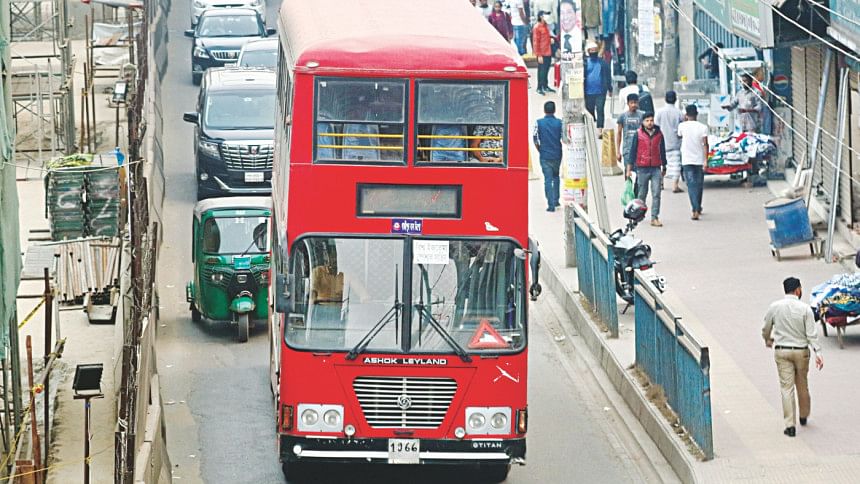
Private transport owners are obstructing the BRTC initiative to launch new buses, mostly double-deckers, on different routes in the country as they fear this will slash their income.
In their defence, they also cite a 16-year-old deal and some directives issued by the Bangladesh Road Transport Corporation though there is a huge public demand for BRTC buses on inter-district routes as its services are relatively cheaper.
As per the directives and the deal signed in 2003 between the government represented by the then communications minister Nazmul Huda and Bangladesh Road Transport Workers Federation, the BRTC would not run double-deckers on inter-district routes.
At the same time, the state-run corporation has the jurisdiction to launch buses across the country.
"Whenever the BRTC wants to launch new buses, private transport owners and workers obstruct the move," said a mid-level BRTC official, wishing not to be named.
The problem intensified last year as the BRTC took steps to launch more routes with 600 new buses, he added.
The corporation in its latest annual performance agreement (APA), signed with the road transport and bridges ministry in June last year, mentioned the "unwanted obstruction" from private transport owners as a major challenge.
The BRTC is now seeking changes to the directives as those go against the BRTC Ordinance 1961, now replaced by the BRTC Act 2020 that was passed in parliament on February 11.
BRTC Chairman Ehsan-E-Elahi on December 12 last year wrote to the road transport and bridges ministry, demanding the minister's intervention in this regard because the 2003 deal was signed by the then communications minister.
OBSTRUCTIONS
Currently, the corporation owns 1,873 buses, including 600 new ones, and 1,357 are in service on 384 routes. Of the rest, 33 new buses are awaiting completion of official procedures while 259 damaged ones are beyond repair and 224 can run after repair.
Aiming at expanding BRTC's services, the government brought 600 buses and 500 trucks from different Indian makers under two projects worth around Tk 732 crore. The buses and trucks arrived at different times last year.
The vehicles include 300 double-deckers, 100 non-AC buses, 100 AC city buses, 100 AC intercity buses, 350 trucks (16.2-tonne) and 150 trucks (10.2-tonne).
But as the BRTC initiated launching of the buses on new routes, local transport owners and workers in Netrokona, Dinajpur, Bogura, Barishal, Sunamganj and Rangpur obstructed the move, officials said.
The latest incident was in Rangpur.
On February 3 and 4, the corporation had to suspend its double-decker service from Rangpur city and its surrounding areas following objections from local transport workers, causing sufferings to a large number of commuters.
The operation of eight double-decker buses faced repeated obstructions at various points since their launch in May last year. Jatiya Sangsad Speaker Shirin Sharmin Chaudhury, also a lawmaker from Rangpur-6, had inaugurated the double-decker service.
"The workers are objecting to plying of the buses outside Rangpur City Corporation area, as this is affecting their income," said AKM Azizul Islam Razu, member-secretary of the Bus Owners Association in Rangpur.
The BRTC faced similar problems in December last year when it launched five double-deckers on Mymensingh-Netrokona route. Transport organisations even observed strikes in both the districts.
They also created obstruction to operation of single-decker buses of BRTC in different upazilas in Mymensingh.
As a result, the BRTC suspended operation of double-deckers on the inter-district route.
"We started operation of five double-deckers on Mymensingh-Netrokona route. After negotiation, we stopped double-decker operations on this route and are now operating three single-decker buses there," Lutfar Azad, BRTC's Mymensingh depot manager, told The Daily Star yesterday.
But, he added, double-deckers were allowed within Mymensingh.
CONCERN OVER INCOME WANING
Contacted, Khondaker Enayet Ullah, secretary general of Bangladesh Road Transport Owners Association, said local transport owners and workers were opposing the BRTC move because the 2003 deal is still in effect.
Besides, when the income of private operators went down due to the illegal three-wheelers like "nosimon" and "korimon" on highways, the operation of new BRTC buses causes a fresh concern for them.
"However," he added, "we are trying to solve all the problems through discussions."
According to the directives, the corporation needs to talk to local transport operators for setting timing and number of trips if its buses are run from terminals instead of its own depots.
Local owners and workers say the BRTC is supposed to run buses from its own depots in different districts. In the absence of its own depot, it will go for a local bus terminal. But in many cases BRTC staff do not follow it, they added.
Osman Ali, general secretary of Bangladesh Road Transport Workers Federation, alleged that the BRTC authorities are violating the deal by operating buses from "undesignated stops", and local workers and owners are against this.
Though the corporation has 21 bus depots including seven in Dhaka, and two truck depots in 15 districts, another directive said BRTC buses running from Dhaka on northern and south western routes would be operated from Kalyanpur depot and those running in eastern direction would be operated from Motijheel depot.
THE DEAL
On August 20, 2003, the then communications minister Nazmul Huda signed the deal with the workers federation. The federation's president Wazi Uddin Khan and executive president Shajahan Khan, now a ruling party lawmaker, signed on behalf of the organisation at that time.
The federation had announced a strike but called it off after the deal was signed.
The federation, a platform of 233 transport workers' unions, in many cases violated laws and government directives. They even ignored court verdicts and keep people hostage by enforcing strikes to protect its interests.
"The operations of BRTC double-deckers, which are running on inter-district routes, would be stopped from today," reads section 8 (Kha) of the agreement.
On the basis of the pact, the then BRTC chairman in December 2003 issued five directives that included ending double-decker service on inter-district routes.
"The timing and number of trips of BRTC buses would have to be communicated to regional transport committee and local [transport] owners' association," read the deal.
A BRTC official said whenever they wanted to discuss the issue, the operators offered fewer trips and odd timing, making the service economically non-viable.
BRTC Chairman Ehsan-E-Elahi said they wrote to the ministry for cancelling the portions of the directives, which go against the BRTC Ordinance and the BRTC Act.
Section 21 of the ordinance reads, "The corporation can operate vehicles on any roads if it is found necessary."
On the other hand, section 22 of the BRTC Act says, "Whatever the Road Transport Act-2018 contains, the corporation, for the sake of public interest, can operate vehicles for transporting passengers and goods on any routes of the country."
The BRTC chairman said they face opposition mainly when it comes to double-deckers. "We sought intervention from our minister as the deal was signed by the then communication minister," he added.
Contacted, Road Transport and Highway Division Secretary Nazrul Islam, however, questioned the relevance of the agreement after so many years.
On the directives, he said those were not issued by the ministry and can be cancelled by the BRTC.
"We've asked the BRTC chairman to talk to transport leaders and resolve it," he told this newspaper on February 6.
When the BRTC chairman's attention was drawn to this, he said he had already spoken to several top transport leaders.
"More discussion is needed in this regard," he added.

 For all latest news, follow The Daily Star's Google News channel.
For all latest news, follow The Daily Star's Google News channel. 

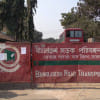
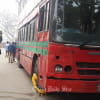
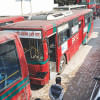
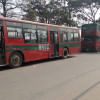

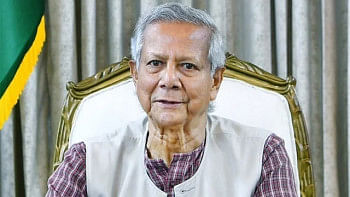
Comments